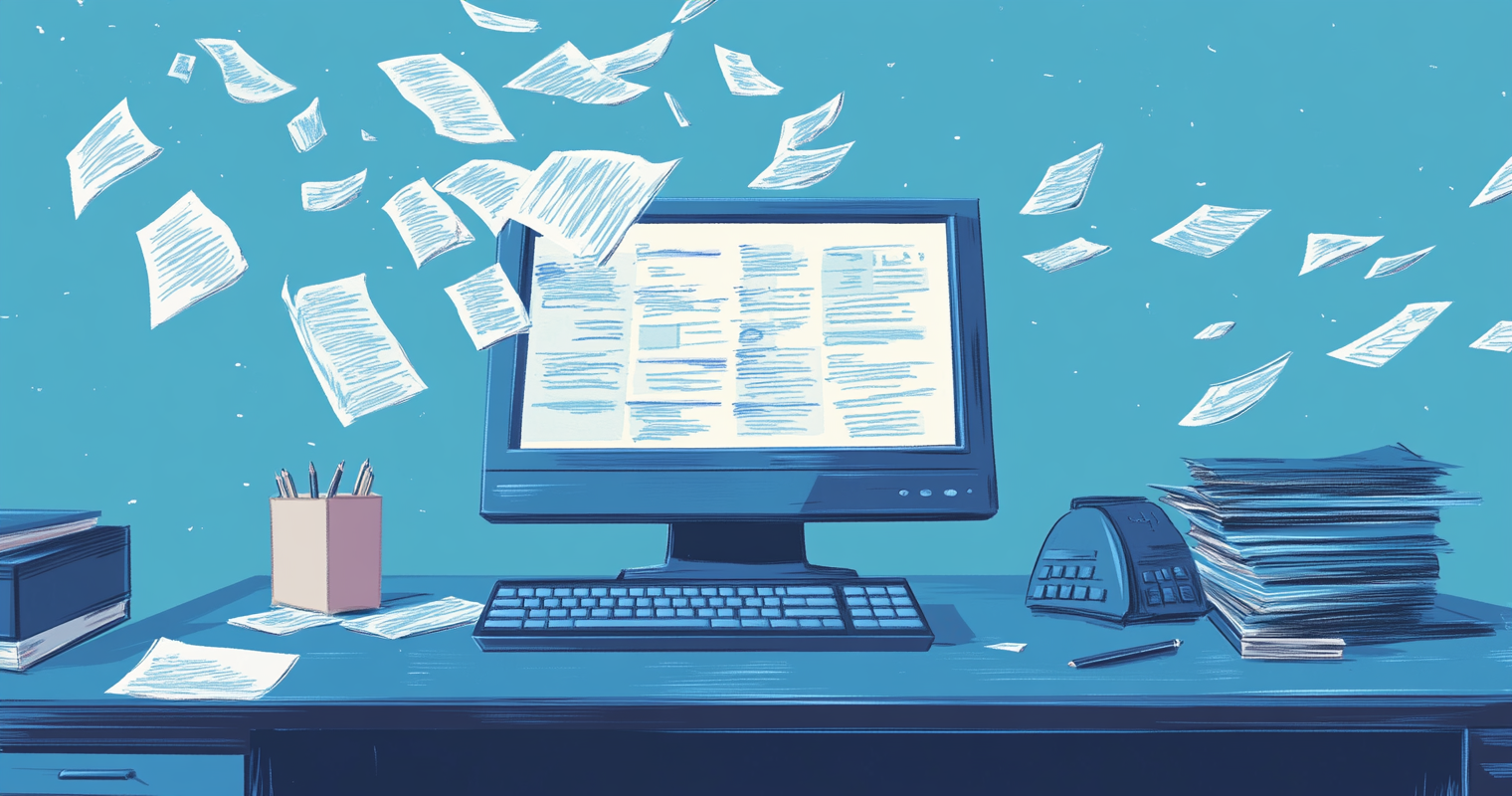As of January 1, 2025, the new E-billing obligation a. A significant innovation in business transactions between companies. The mandatory introduction of electronic invoicing (e-invoicing) for all B2B transactions is the basis for this development of the Growth Opportunities Act passed in March 2024, which prepares companies for the comprehensive digitalization of invoicing processes.
Table of contents
- Why is the e-bill being introduced?
- New regulations: What companies can expect
- Who is affected by the regulation?
- Transition periods and implementation steps
- Consequences of non-compliance
- Requirements for the receipt of invoices
- Possible transmission channels for e-invoices
- Exceptions and archiving obligations
- Recommended programs and tools
- Conclusion
Why is the e-bill being introduced?
The mandatory introduction of e-invoicing follows the example of numerous EU member states and some countries outside the EU that have already established electronic invoicing as the standard. The aim of this measure is to facilitate the exchange of invoice data more efficient and to prepare for the planned introduction of an EU-wide electronic reporting system for VAT as part of the European Commission's ViDA initiative. While the implementation of this system was planned for 2028, a postponement until 2030 or 2032 is now being discussed. In Germany, a national reporting system is not to be put into operation until after the EU-wide solution has been implemented.

New regulations: What companies can expect
From the reporting date January 1, 2025 there are now only two categories of invoices: electronic invoices (e-invoices) and other invoices. This distinction is essential for compliance with the new requirements.
E-bill:
An e-invoice is defined as a document that is issued and processed in a structured, machine-readable format in accordance with the European standard EN 16931. Formats such as XRechnung or the hybrid ZUGFeR format meet these requirements, as they contain both machine-readable and human-readable elements. Formats such as PDF, .jpeg or .docx, which do not enable structured data processing, are no longer considered e-invoices.
Other invoice:
These include all paper invoices and Non-structured formats such as PDF or image files. These formats will no longer be recognized as electronic invoices from 2025.
Who is affected by the regulation?
The e-invoicing obligation applies to all B2B sales within Germanyregardless of whether the company operates on a full-time or part-time basis. Small businesses must also adapt to the new regulations by 2028. A prerequisite for the obligation is that both the supplier and the recipient are domiciled in Germany. Simple VAT registration without domestic residency does not constitute an obligation to e-invoice.
Exception
Sales with private end consumers (B2C) and cross-border B2B transactions are excluded from this regulation. except.

Transition periods and implementation steps
Implementation will take place in several phases in order to give companies sufficient time to adapt:
- 2025-2026: Companies may still issue paper invoices and electronic invoices in non-compliant formats (such as PDF), provided the recipient agrees.
- 2027: For companies with an annual turnover of less than €800,000, the use of non-compliant formats remains possible.
- From 2028: The issuing of e-invoices will become mandatory for all B2B sales. Non-compliant invoice formats will no longer be permitted.
Consequences of non-compliance
Companies that do not adhere to the deadlines for switching to e-invoices can expect various sanctions:
- Fines: Violations of the e-invoicing obligation can be classified as administrative offenses that are punishable by fines.
- Delay in payment: Invoices that are not submitted in the prescribed formats may be rejected by invoice recipients, which can lead to delays in payment processing.
- Legal disputes: Non-compliance can also lead to legal disputes, especially if contractual partners insist on compliance with the statutory provisions.
Requirements for the receipt of invoices
From 2025, companies must ensure that they are able to Receive and process e-invoices. The recipient's consent is no longer required, unless the invoice format is not compliant. For end consumers, however, consent to the use of electronic formats is still required.
Possible transmission channels for e-invoices
Companies can organize the sending and receiving of invoices in various ways. These include
- Sending by e-mail
- Use of electronic interfaces
- Provision in a central storage location
- Download options via Internet portals
Companies also have the option of commissioning external service providers for the transmission and processing of e-invoices, but must ensure that all legal requirements are met. Particular attention must be paid to the Pay attention to safetyThe increased receipt of file attachments by email increases the risk of cyberattacks, which is why it is essential to check attachments for malware.
Exceptions and archiving obligations
An e-bill is not required in all cases. Invoices for small amounts up to €250 and tickets are exempt from the obligation. Electronic invoicing is also not mandatory for tax-free services in accordance with Section 4 UStG. The retention periods remain unchanged at ten years. It is important that the e-invoices are archived in the original, structured format and meet the requirements for immutability. Even if a readable PDF document is also available, the original format must be saved.
Recommended programs and tools
The following programs and services can be used to facilitate the changeover to e-billing.
- XRechnung tools: Software solutions that are specially designed for the creation and processing of XRechnung invoices, such as DATEV or Lexware, offer support in complying with the EN 16931 standard.
- Cloud-based billing services: Providers such as Zoho Invoice or FreshBooks make it possible to create, send and manage e-invoices via online platforms.
- ERP systems: Large ERP systems such as SAP or Microsoft Dynamics offer integrated solutions for handling e-invoices and their compliance.

Conclusion
The mandatory introduction of e-invoicing from 2025 represents a significant change for business transactions in Germany. Companies should prepare in good timeto meet the new requirements and benefit from the advantages of efficient processes and improved data processing.




